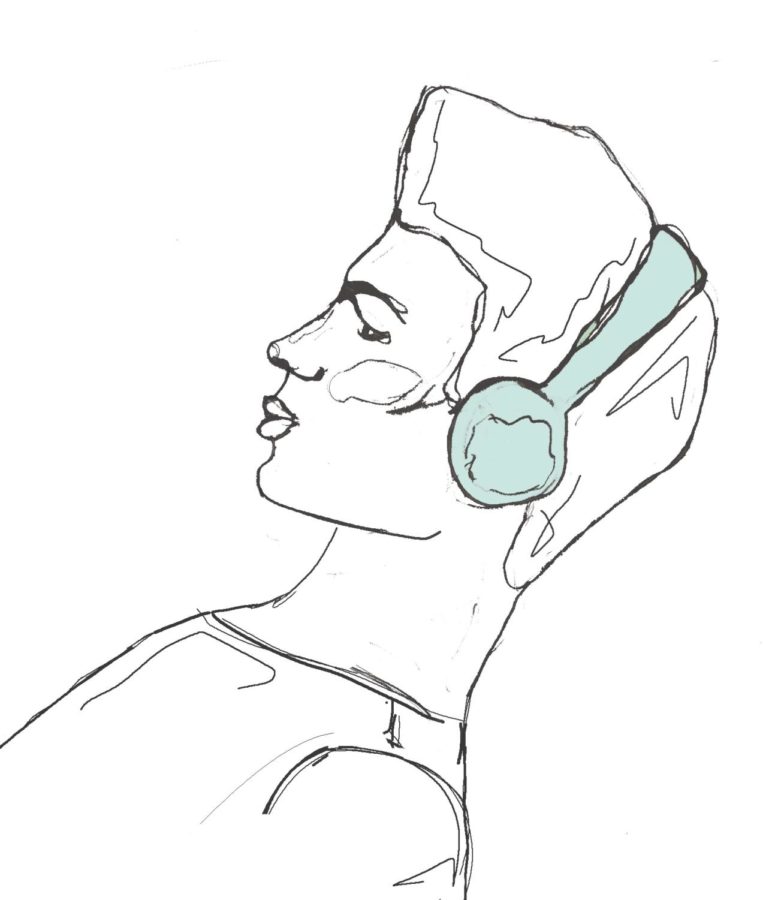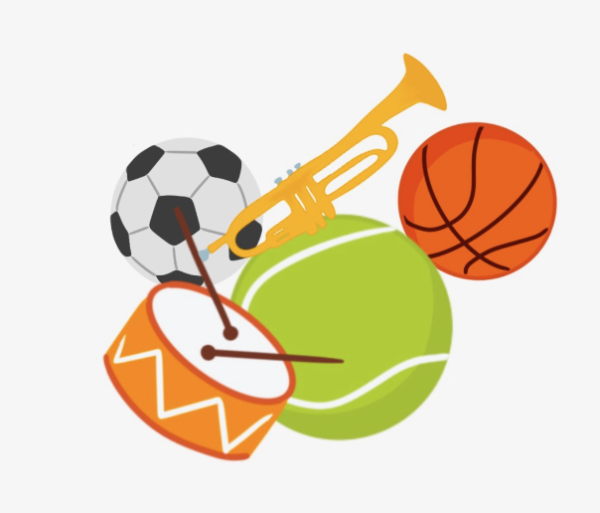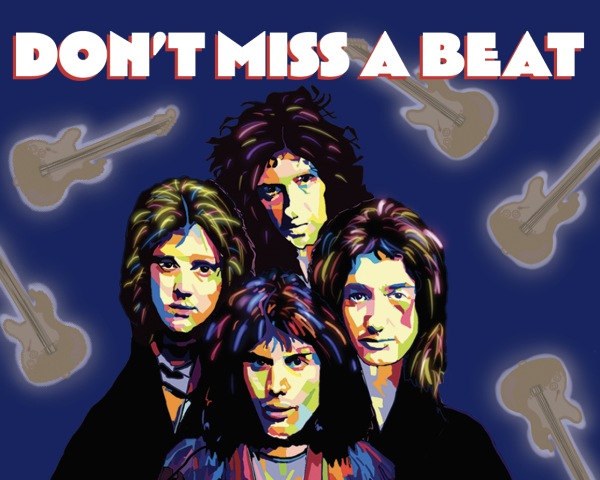Soundtrack to Success
3 MIN READStudy music is a unifying element in Paly’s community and there is more to the seemingly spontaneous styles that one chooses during an individual study session.
Study music is an individualized genre, essential to many students in providing motivation during long hours of focus and diligence. Now, music has become an integral part of schools, with students wearing headphones between classes and while studying.
A constant stream of music can greatly influence academics as it guides our mood between states of high and low energy. Though music taste is subjective, the ideal songs to listen to while studying are a style that hits a happy medium between the two extreme states of high and low energy, cultivating a sustained session of productive work. Many people have a specialized taste and a compose a study playlist that puts them into a perfect state of mind.
Some students choose instrumental tracks or even classical music when working on subjects like English or Social Studies without thought. According to Paly student Audrey Kernick (‘21), when she’s doing her English homework, she tends to pick music that does not focus on the lyrics. “I primarily listen to movie soundtracks, words can be pretty distracting when I’m doing my serious stuff […] my current favorite being Ladybird,” Kernick said. On the surface, listening to instrumentals seems like the least distracting choice, but research has proven that it goes far beyond that. Classical music has been found to be most helpful during study sessions, however, instrumental music almost works just as well. In 2007, researchers at Stanford University used fMRI, or functional magnetic resonance imaging, to scan volunteers’ brains to monitor their activity while listening to a 200-year-old piece of music. The researchers found heightened activity in areas of the brain associated with paying attention, remembering and predicting events. So, despite the feeling of spontaneity in choosing a random classical playlist, the benefits are numerous. Instrumental music will help keep you focused longer and will be advantageous in the future when it comes time to remember all the textbook notes taken throughout many sleepless nights. If instrumental music is not for you, there is an alternative as upbeat songs with lyrics can help with focus and attention in more numerical subjects like math and sciences.
In math and subjects that require similar non-writing tasks, faster and more upbeat music may be more useful. Lyrical music may be less distracting during non-writing tasks because the listener does not have to multitask between listening to an artists’ vocal while writing their own work. In addition, pump-up music can elevate one’s mood and therefore make the task one is doing seem shorter or less strenuous than it is. “It is a lot easier to listen to my favorite songs when I am doing busy work, like math,” Ryan Strathearn, a Paly senior, said. “When I’m listening to my music, it makes mindless activities a lot more fun.” Generally, songs with higher beats per minute, about 130 or more, are great energizers. However, it is critical to select a song that is personal and well-liked by each individual.
Instead of shuffling through Pandora’s radio stations or Apple music’s top ten, it can be quite beneficial to create a playlist for a specific activity or subject you are trying to conquer. With the soothing and uplifting sounds of classical music, you are retaining more information and thinking more cognitively. Math, sometimes known for being a difficult subject, can be overpowered by upbeat and energizing music that frees the technical parts of your brain. Whatever style of music you are looking for, remember to choose music that brings out the creative, logical or studious side of you. With the help of these beats, you are furthering your ability to prosper and thrive throughout high school and in future academic ventures. Keep in mind, this is about you finding your happy and productive study space, mentally, emotionally and physically.










